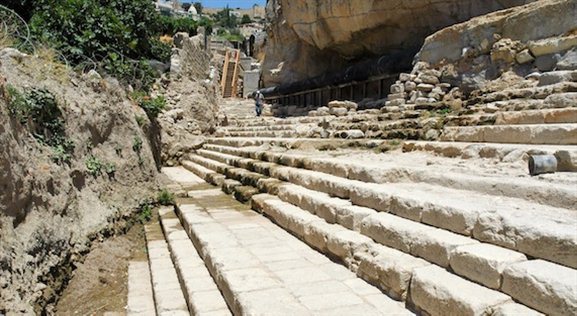Focal Passage: I Corinthians 2:10-16
I read the passage several times in recent years, I’m sure. The notes in the margin of my Bible tell me so. I am always amazed at how God opens my eyes to his inspired word, often opening a new line of thought. There is, it seems, always something new to learn and discern.
In a conversation with my sister this week, we talked about the state of our country and the world today. Troubled by the hateful and divisive rhetoric and the internal and external conflict that pits person against person, group against group and nation against nation, we both wondered at what seemed to be the lack of wisdom, compassion and understanding. I remember thinking, “What kind of mind makes these kinds of decisions?”
Two days later, I sat down to read a passage in I Corinthians which oddly enough speaks to mindset of those called as God’s people. I had to think about the state of my own mind and whether my mind was where it needed to be.
Listen to what Paul tells the Corinthian church. Don’t just read it. Read as if Paul sent the letter to you.
“…The spirit searches all things, even the deep things of God. For who among men knows the thoughts of a man except the man’s spirit within him? In the same way, no one knows the thoughts of God except the Spirit of God. We have not received the spirit of the world but the spirit who is from God, that we may understand what God has freely given us. This is what we speak, not in words taught us by human wisdom, but in words taught by the spirit, expressing spiritual truths in spiritual words. The man without the spirit does not accept the things that come from the spirit of God, for they are foolishness to him, and he cannot understand them, because they are spiritually discerned. The spiritual man makes judgments about all things, but he himself is not subject to any man’s judgment: “For who has known the mind of the Lord that he may instruct him?” (I Corinthians 2:10-16a)
Then Paul adds this one phrase in this passage that I have missed time and time again.
“But we have the mind of Christ.” (I Corinthians 2:16b)
As I try to make sense of how I should think amid today’s disturbed world, this phrase was a 2” x 4” across my nose. It certainly got my attention.
We have the mind of Christ.
Before we get too deep into what that means, let’s briefly explore the context of Paul’s first letter to the Corinthian church. The church in Corinth experienced wave after wave of division and conflict. Arguments over theology or ministry pitted one faction against the other, each thinking they were wiser than the other. Corinthian culture drew upon the influence of Greek philosophy and human wisdom.
Early Christian apologist Aristides, an Athenian philosopher who converted to Christianity in the 2nd century, said of Corinth, “On every street in Corinth one meets a so-called wise man, who has his own solutions to the world’s problems.” (That sounds eerily familiar to our culture today.)
This cultural pattern invaded the church like a virus and spread. Paul spent the early part of his letter addressing the difference between worldly wisdom and God’s wisdom.
Paul tells the church that a person without God’s spirit cannot accept or understand the things that flow from the spirit of God. It is foolish sounding to him because the things of God are spiritually discerned…revealed to believers by his indwelling spirit. That’s a critical point because it is the basis for understanding “the mind of Christ.” It is the basis for grasping the importance of relying on God’s spirit for understanding and wisdom.
If believers, as spiritual beings, are to “make judgments about all things,” it is the mind of Christ we must use to help us discern the truth and determine what we should say and how we should live.
I’ve shared a lot in the past writings about my journey in understanding what it means to be made in the image of God. Equally, this one phrase about having “the mind of Christ” opened a new avenue of study into understanding who we are in Christ. How he shares his mind with us through his spirit. How his mind should set us apart from the culture around us. It is his invitation for us to discover rich spiritual truths and explore a deeper relationship with God.
Let’s look again at I Corinthians 2:16.
For who has known the mind of the Lord that he may instruct him? But we have the mind of Christ.
Paul first quotes Isaiah 40:13, drawing on this Old Testament passage to emphasize God’s wisdom and mind are beyond human understanding. At the same time, it challenges us to contemplate God’s desire to teach us his will and way.
In Jesus, believers are given access to God’s wisdom, God’s mind, if you will, through the Holy Spirit. The spirit is a gift God gives us when we profess Jesus as Lord of all. Jesus told his disciples there would come a time when he was no longer with them physically. When he left God would send “the Counselor.”
…The Holy Spirit whom the father will send in my name , will teach you all things and will remind you of everything I have said to you. (John 14:26)
His spirit is not something we have to work to acquire, but we must learn to use the mind of Christ within us. To let it teach us and remind us of what Jesus said and did. To help us understand the mind of Christ by providing insight into scripture and how it applies to life. He gives us the vision to see the world differently. To see others, their hurts and their needs, through the eyes of Christ. He gives us the desire then to act upon what we see in service to others, extending grace to those around us while holding ourselves accountable to God’s truth.
Let me underscore that last part. Living with the mind of Christ means we hold ourselves accountable to his word and will. We cannot lay claim to the mind of Christ and treat others with contempt or to engage in the hateful rhetoric or acts we see around us. Such attitudes and actions are not compatible with the mind of Christ.
Paul contrasted our human inability to comprehend God’s mind on our own with the insight gained through the indwelling presence of the “mind of Christ.” Even on our best days, our understanding of the purpose and plans of God is limited. Isaiah alluded to this limitation. I think that’s why some scripture jumps out at us with deeper meaning, depending on the season or circumstance of our lives.
For my thoughts are not your thoughts, neither are your ways my ways, declares the Lord. As the heavens are higher than the earth, so are my ways higher than your ways and my thoughts than your thoughts.” (Isaiah 45:8-9)
The unknown elements of life cause confusion. At times we question or doubt God. However, we are repeatedly assured of God’s love and that he always knows the path ahead of us. The good news is we have what Isaiah didn’t have. We have the mind of Christ and that is life-changing.
We are no longer restricted by the limited wisdom of man. Our identity as “new creations” through our faith and trust in Christ, allows us to embrace, experience and exemplify the mind of Christ exhibited during his ministry on earth.
Christ showed us how to live a life of love, sacrifice, wisdom and grace. It was on his mind and in his heart always…in every encounter with every soul. Writer Jamie Wilson said that experiencing the mind of Christ is transformative, “…not a mere change in perspective; it is a radical shift in how we approach life and our relationship to God and others.”
It was a theme Paul carried to the Philippian church, as well, when he encouraged them to be united in Christ, possessing compassion and tenderness toward others. He urged them to be like-minded, having the same love, being one in spirit and purpose. He said, “Let this mind (attitude) be in you which was also in Christ Jesus.” (Philippians 2:5)
It carries a responsibility as Christians to cultivate a mindset that looks like Jesus. That thinks, lives and acts in all things, in all ways and at all times with compassion and a servant’s heart just as Jesus did.
I can’t speak for you, so I’ll just share my thoughts. My life experiences, my fruitful and my failed efforts at living life, have taught me that my understanding of God’s will for my life is imperfect. My background, education and experiences offer beneficial insight, but true wisdom is a God thing. It is his alone. I have to be willing to let go of my ego and follow where he leads every day.
I find it hard to seek and understand the mind of Christ if I am not truly engaged with him. If my prayer life is stilted, if my Bible study is superficial, if my fellowship with other believers is inconsistent, I miss opportunities to grow in the mind of Christ. Connecting with God through his word and through worship and praise, helps align my thoughts with his thoughts. I find that’s when clarity comes.
Having the mind of Christ carries a responsibility of reflecting him to others, inviting them to share in his love. Jesus thrived on his relationship with the father. It ignited the passion he had for sharing his love with others. If I embrace the mind of Christ, it deepens my own relationship with the father. My passion for sharing Christ’s love is at its highest when I am most connected to the mind of Christ.
I suspect it’s no different for you.
Think of the change the world would experience if all who professed a faith in Christ lived as if they had the mind of Christ. Our approach to ministry, outreach, service, governance and life in general would be much different.
Make this our prayer:
Father, help us remember that we are called to reflect Christ’s heart and mind in all our relationships. Let the mind of Christ guide our decisions, our thoughts, our words and everything we do. Help us avoid adding to the world’s divisive rhetoric and even more destructive behaviors. Help us seek to heal wounds by trusting in your wisdom and living in the mind of Christ so that others may see and experience the transformative power of God’s love.
Amen.
Thinking Points
What does it mean to you personally to have “the mind of Christ?” How does it shape the way you view and interpret current events or the culture around you?
In what ways might you be relying on human wisdom rather than God’s spirit to inform and guide your decisions?
How might your interactions with others and your social and political outlook differ if you approached the compassion, humility and grace exemplified in the mind of Christ?
Are there habits or patterns in your spiritual life—inconsistent worship, Bible study, prayer or fellowship—that hinder your ability to experience the mind of Christ?
In what areas of life do you most need and desire God’s wisdom this week? How can you actively seek it through his spirit this week?
****
Author’s Note: If you would like to receive this Bible study blog via email, click www.drkirklewis.com/the-searcher. Find the “Subscribe” button and enter your email address. That’s all it takes.

